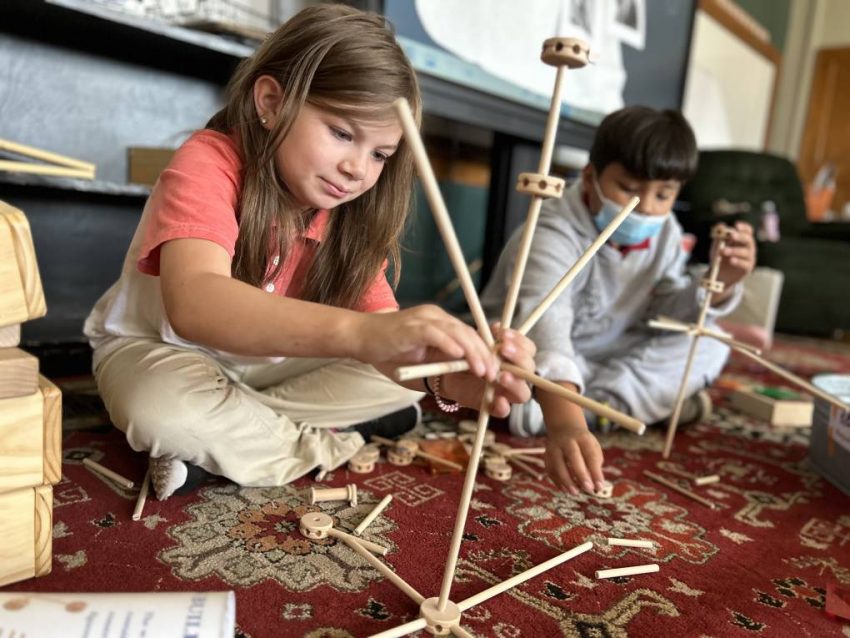
Whereas play-based studying stays comparatively uncommon in elementary school rooms, Oklahoma Metropolis is amongst a small variety of college districts throughout the nation experimenting with elevated play time for youngsters as previous as eight or 9. In Watertown, New York, for instance, educators have been educating via play in pre-Okay and kindergarten for years, mentioned former Superintendent Patti LaBarr, however the district lately shifted to encouraging play for older elementary college students, too. And in Austin, Texas, one college official has began coaching elementary academics to make use of Lego robotic toys as a play-based studying software throughout class time.
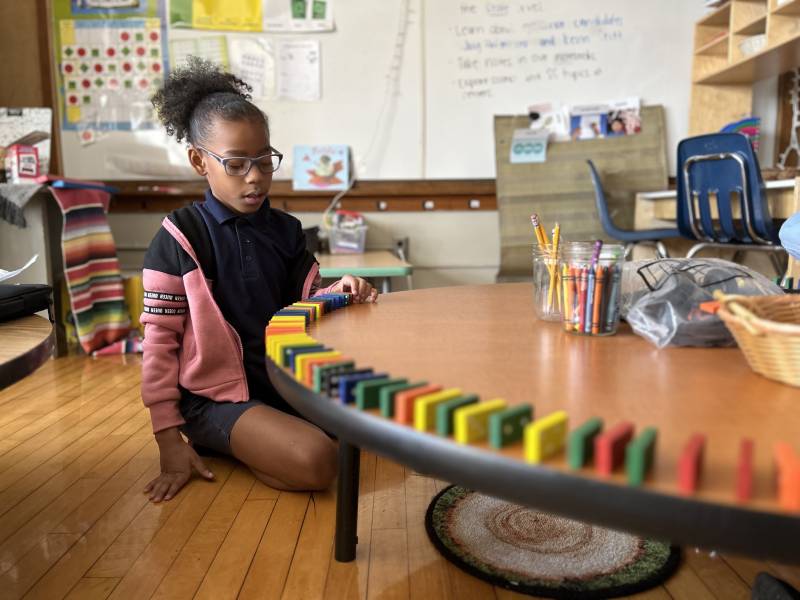
The rising give attention to play in older grades will not be at all times straightforward, as academics take care of strain to satisfy standardized testing mandates and a scarcity of help from some directors. However educators who’ve turned to play-based studying say the strategy is especially useful now, as pandemic disruptions have left college students with social, emotional and behavioral gaps.
It may be tough to elucidate what play-based studying seems like, mentioned Mara Krechevsky, senior researcher at Challenge Zero, an training analysis group in Harvard’s Graduate Faculty of Schooling. Over the previous seven years, Krechevsky and her analysis crew have been engaged on a venture referred to as the Pedagogy of Play, finding out play-based studying at faculties in Boston, Denmark, South Africa and Colombia.
By their analysis, Krechevsky’s group got here up with three primary tenets for frolicsome studying: college students ought to have the ability to assist lead their very own studying, discover the unknown, and discover pleasure. Underneath this framework, play time doesn’t should be the reward for finishing work and studying. Play can truly be the work, Krechevsky mentioned.
A lot of the impetus for the shift in Oklahoma Metropolis comes from Stephanie Hinton, who began overseeing pre-Okay via second grade at Oklahoma Metropolis Public Colleges a couple of years in the past. She knew she needed to encourage hands-on, playful studying as a lot as doable. The strategy labored for her as a trainer, and it’s backed up by research.
At Shidler Elementary, most college students qualify without cost and decreased lunch and check scores have historically been low. It’s the type of college the place, usually, it’s tough to get everybody on board with play-based studying, Hinton mentioned. Regardless of these challenges, play has begun to catch on in its school rooms.
“There’s this push for ability and drill in faculties and communities the place we’re not passing the check,” Hinton mentioned. It may be straightforward to suppose the answer is assigning extra schoolwork and sending dwelling extra worksheets, Hinton added. That’s as a result of worksheets are black and white — both the scholar is aware of the reply to the questions on the task or they don’t. However Hinton mentioned regurgitating solutions on a chunk of paper isn’t an indication of understanding.
“It’s not genuine, it’s not true studying,” she mentioned. “And we all know from analysis that when it comes right down to it, it hasn’t engaged sufficient of the mind to make it everlasting studying.”
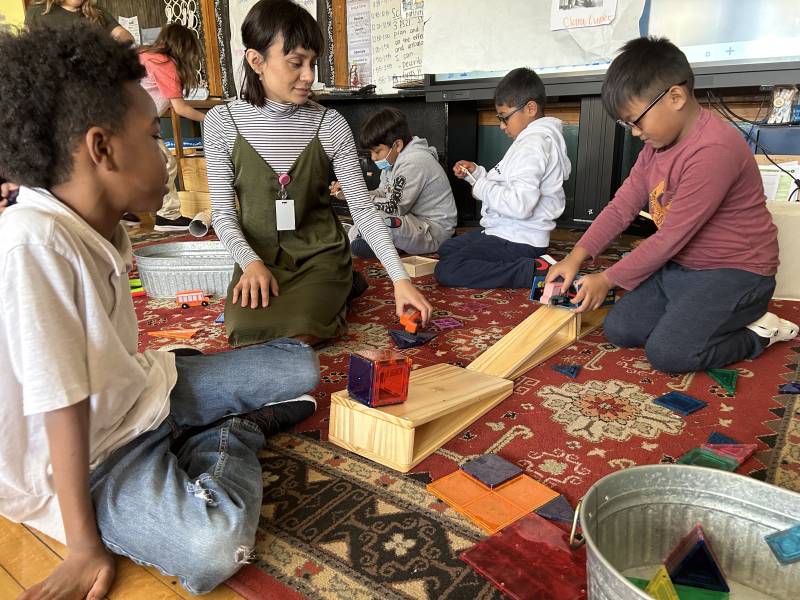
However letting children be taught via play is difficult to understand for educators who’ve been skilled to observe the foundations and construction of a conventional college setting, mentioned Peg Drappo, who runs the pre-Okay program in Watertown Metropolis Faculty District in New York. Watertown started to extend its give attention to playful studying in 2015, when the district obtained a federal grant that helped broaden play in its pre-Okay program. Within the seven years since, Drappo and the district’s superintendent have been serving to academics of the older grades who approached them about including play to their very own school rooms.
However when she was an elementary college principal a number of years in the past, Drappo didn’t perceive what playful studying was purported to seem like. Now, when she speaks at conferences on play-based studying, she tells a narrative about visiting a kindergarten classroom when she was a principal.
“The children have been everywhere, all around the ground doing issues — similar to a kindergarten classroom needs to be. However I didn’t know this world of pre-Okay and play, so I mentioned to [the teacher], ‘I am going to come again to your classroom if you’re educating,’” Drappo mentioned. “Now after I stroll right into a classroom and it’s loud and a trainer apologizes, I say, ‘Cease apologizing. That is the way it’s purported to sound.’”

In Oklahoma, playful studying has help from lawmakers as properly.
Earlier than turning into a trainer, Oklahoma state Rep. Jacob Rosecrants, a Democrat, thought all college students have been taught classes via play.
“I grew to become a trainer again in 2012 and I spotted it’s [play] not even accepted anymore as a solution to be taught, even within the youthful grades,” Rosecrants mentioned. “Some faculties do it nice, however I am speaking about the way in which that I discovered — going exterior, taking part in, discovering — that sort of factor was not one thing that was targeted on in any of the general public faculties I went to [as a teacher].” (Rosecrants left educating in 2017 when he was elected to signify Norman, Oklahoma within the state home.)
As a center college trainer, Rosecrants mentioned, he rebelled towards the concept college students ought to be taught through memorization, drills, and worksheets. In 2021, the Oklahoma legislature passed a law that encourages the usage of play in pre-Okay via third grade school rooms. The legislation, which was written by Rosecrants with bi-partisan help, additionally forbids directors from prohibiting educators’ use of a play-based strategy to educating.
“I’ve had a variety of academics who requested me to print it out to allow them to publish it of their classroom, as a result of directors will are available and be like, ‘Hey, we gotta hit this commonplace, what are you doing?’ They usually’re like, ‘Properly, we’re hitting this commonplace, however we’re [doing it] with blocks,’” Rosecrants mentioned. “I need to add a chunk to [the law] in all probability this 12 months … to require coaching for play-based studying for all directors in pre-Okay via third grade.”
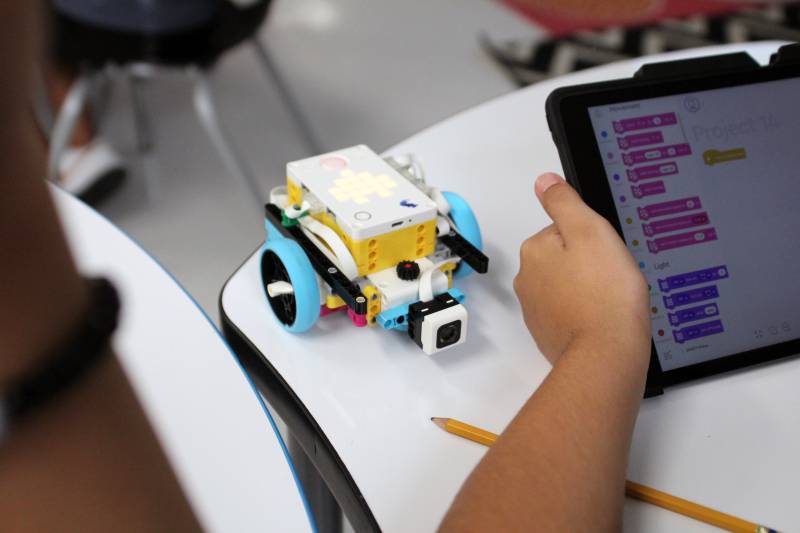
Some faculties are attempting to extend play by turning to STEM-focused actions, like constructing robots with Legos. Manor Impartial Faculty District, a district of about 9,000 college students simply east of Austin, Texas, launched a robotics program round a decade in the past, in an try and deliver extra playful studying to college students within the early years of elementary college. For a number of years, robotics was largely confined to an after-school program utilizing Lego’s academic merchandise.
Jacob Luevano, the modern educating strategist at Manor ISD, mentioned he has been working to coach academics to combine robotics into their school rooms. “I believe now greater than ever, we’d like [playful learning] within the school rooms,” Luevano mentioned.
To date, Luevano has had extra success in getting robotics actions launched to school rooms in kindergarten via second grade than in higher elementary, which he attributes, partly, to the strain of standardized testing that begins in third grade.
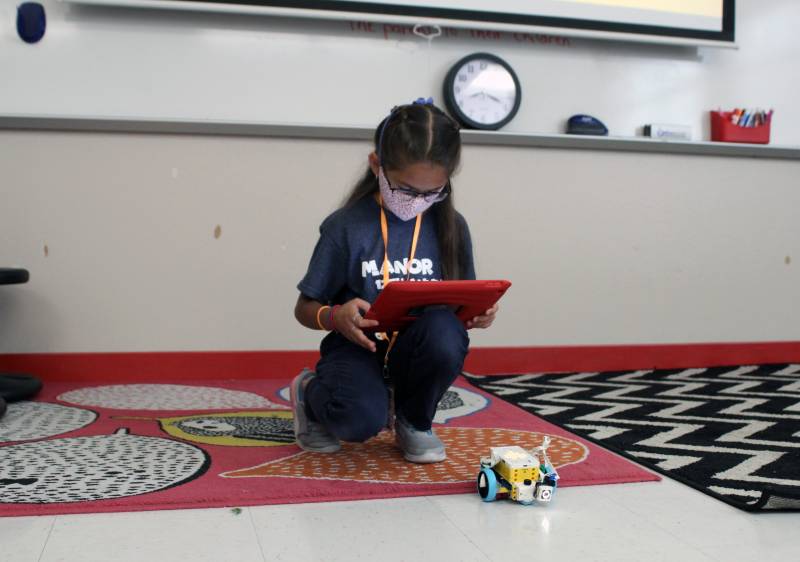
As kids recuperate from the isolation of the Covid-19 pandemic, lively, playful studying is extra essential than ever as a result of it strengthens social and emotional expertise, mentioned Hinton in Oklahoma Metropolis.
“This is not nearly play. That is about constructing relationships, and social-emotional studying,” Hinton mentioned. “Generally when an grownup is dropping their thoughts about one thing, I believe: I’m wondering what your play behaviors have been like as a baby?” It helps, she clarifies, if kids have already skilled dropping in a cooperative setting — whether or not at Monopoly, Hello Ho! Cherry-O or one other sport. “The way you deal with that, it says so much about the place you might be in your social emotional growth,” she mentioned.
In O’Brien’s classroom in Oklahoma Metropolis, there aren’t any desks. As an alternative, college students sit at spherical tables or on a rug in entrance of the whiteboard, relying on the exercise.
Lately, the category discovered about static electrical energy. O’Brien arrange stations with totally different objects — balloons, tissue, paper — to indicate the children how static electrical energy works.
“I requested them to determine how they may make these totally different supplies transfer with out instantly touching them,” O’Brien mentioned. After that, she led a dialogue on what the scholars found and introduced them with some technical, scientific phrases.
This 12 months is O’Brien’s first again at Shidler Elementary. She left the district in 2021 to get a grasp’s diploma in early childhood training and work at a non-public preschool in Colorado that makes use of the Reggio Emilia approach to educating, an strategy born in Italy that encompasses important play.
Like different play-based applications, Reggio Emilia is most frequently seen in non-public and prosperous preschool school rooms. When O’Brien made the choice to return to Shidler Elementary, she was partly on a mission to deliver play-based studying to a public setting.
“It’s not one thing that ought to simply be for the elite, and I believe all kids can profit from studying this fashion,” O’Brien mentioned.
This story about play-based learning was produced by The Hechinger Report, a nonprofit, impartial information group targeted on inequality and innovation in training. Join Hechinger Reporter newsletters.
















